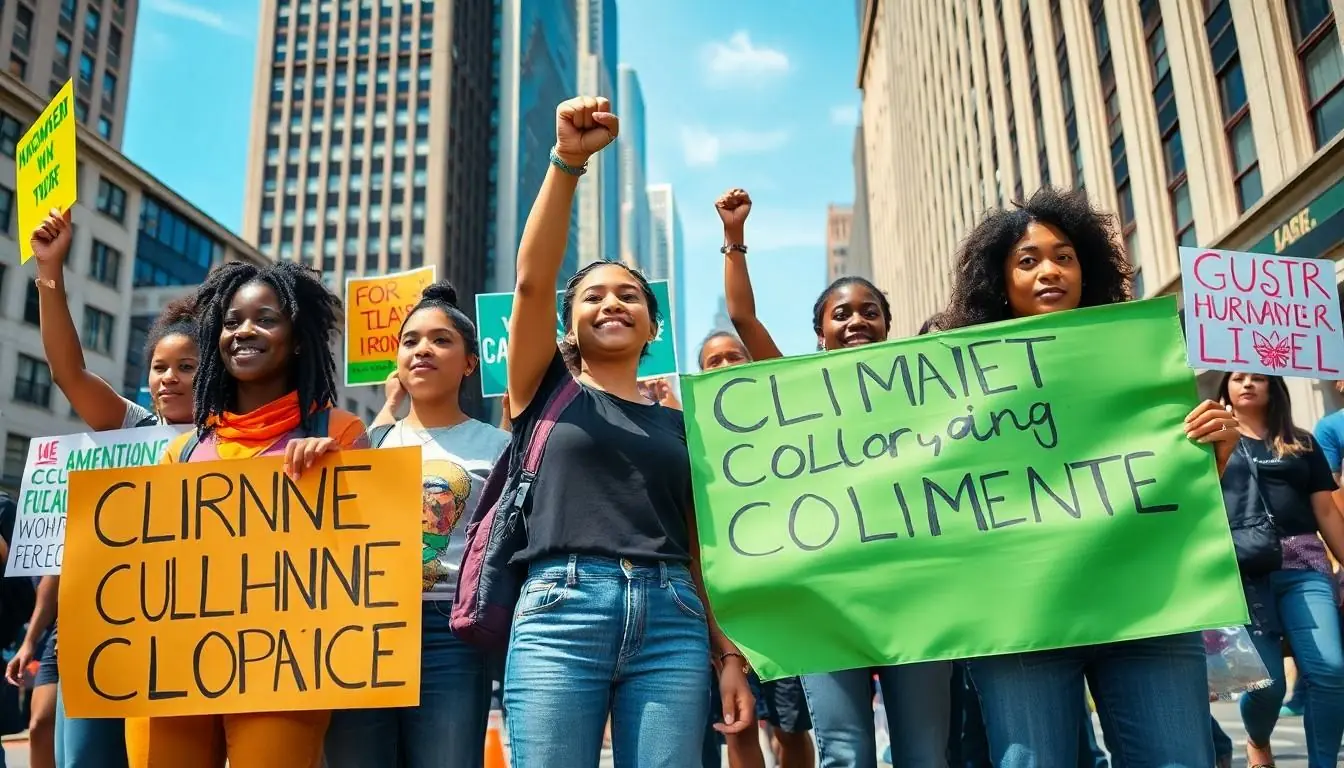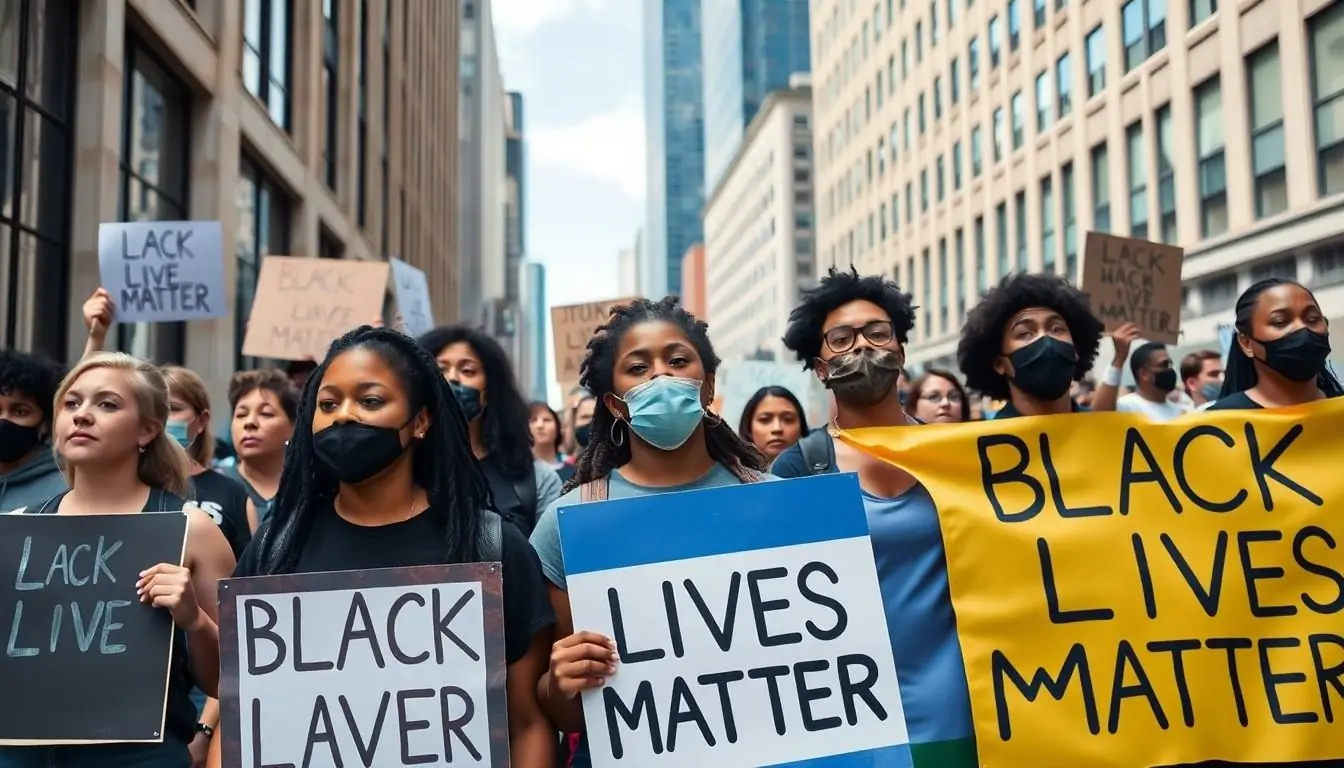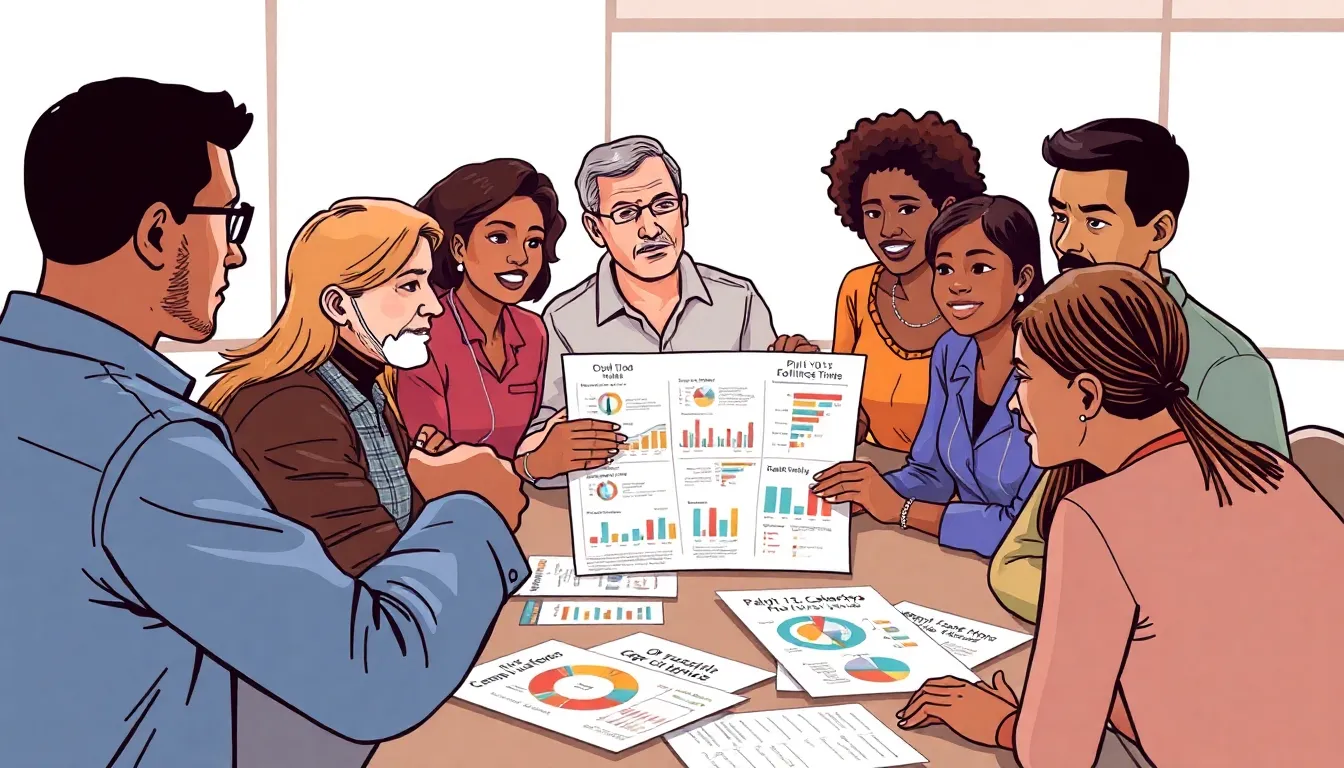In a world where political landscapes shift faster than a cat on a hot tin roof, recent political movements are shaking things up like never before. From grassroots campaigns to viral social media hashtags, citizens are stepping up and demanding change. It’s like a reality show where everyone’s vying for the spotlight, but this time the stakes are much higher than a rose ceremony.
These movements aren’t just making headlines; they’re sparking conversations that ripple through communities and across borders. Whether it’s climate activism or social justice, people are uniting and raising their voices, proving that change isn’t just possible—it’s inevitable. So buckle up, because the political ride is getting wilder, and it’s time to dive into what’s really driving these dynamic forces.
Table of Contents
ToggleOverview Of Recent Political Movements
Recent political movements showcase dynamic shifts driven by grassroots activism and digital engagement. Citizens increasingly vocalize demands for climate action, social justice, and equitable policies. Social media platforms amplify messages, allowing movements to gain momentum swiftly. Activists unite under banners like Black Lives Matter and Fridays for Future, which advocate for racial equity and environmental responsibility.
In 2023, global protests addressing these pressing issues surged, reflecting widespread discontent with established political structures. The performance of recent elections further illustrates this change, with candidates focusing on progressive platforms that respond to grassroots demands. Public sentiment shifts toward transparency and accountability, compelling politicians to engage more genuinely with constituents.
Youth involvement plays a significant role in these movements, as younger generations mobilize around causes that matter to them. Their engagement often manifests in local initiatives, community organizing, and nationwide campaigns. Urban centers frequently become hubs for such activism, propelling regional demands into national discussions.
Various organizations are building coalitions to strengthen these efforts. Collaboration between different groups fosters diverse strategies, enabling broader reach and inclusivity. Facts and data inform their actions, empowering activists to articulate their goals clearly and persuasively.
Overall, recent political movements reflect an evolving landscape characterized by increased awareness and participation. Collective actions reinforce a sense of urgency around critical issues, driving both dialogue and policy change. These shifts illustrate the significant impact of organized efforts in shaping a more equitable future for all.
Notable Movements Worldwide
Recent political movements illustrate widespread efforts for change across various regions. Activism has gained momentum, reflecting the public’s desire for reform and accountability.
Movement In North America
In North America, the Black Lives Matter movement continues to influence discussions about racial inequality. This grassroots initiative spurred protests, pushing for legislative reforms in policing and criminal justice. Climate activism has also gained traction through groups like Sunrise Movement, advocating for sustainable practices and green jobs. Additionally, the 2023 midterms saw candidates prioritizing progressive policies influenced by these active communities. Overall, the synergy among diverse movements creates a powerful call for systemic change.
Movement In Europe
European political landscapes have transformed due to various movements aimed at social justice. The Fridays for Future initiative mobilizes youth, demanding immediate action against climate change. Activists in France have protested against economic inequality, while women’s rights groups in Spain advocate for gender equality and better reproductive rights. These efforts showcase the interconnectedness of local issues with broader European themes. Diverse protests have shaped public debates, prompting governments to address longstanding grievances and increase citizen engagement.
Movement In Asia
In Asia, movements addressing democratic freedoms and human rights are particularly noteworthy. Citizens in Hong Kong have continuously championed democracy, staging mass protests against perceived government overreach. Activists in India raise awareness around agrarian distress and social equity, seeking government intervention for farmers. Environmental groups in countries like Bangladesh and Indonesia work tirelessly to combat climate-related challenges. This focus on rights and sustainability reflects escalating public awareness driven by grassroots mobilization. Such movements are crucial in engaging the youth and fostering a culture of activism throughout the continent.
Impact Of Social Media
Social media significantly shapes recent political movements, enabling faster communication and broader reach. These platforms empower grassroots organizations to mobilize supporters effectively.
Role In Mobilization
Digital tools accelerate mobilization efforts through instant sharing of information. Young activists harness social media apps for organizing protests and rallies, enhancing participation. Hashtags unite voices around specific issues, creating viral campaigns. The usage of live streaming allows real-time coverage of events, drawing attention and encouraging involvement. Organizations can rapidly ensure logistical support through social media, reinforcing community bonds and facilitating collaboration. Through this, platforms transform traditional mobilization strategies into dynamic movements.
Influence On Public Opinion
Public opinion shifts quickly due to social media’s extensive reach. Online discussions amplify marginalized voices, bringing attention to systemic issues. The sharing of personal stories resonates deeply, humanizing complex problems and sparking empathy. Memes and shareable content simplify critical messages, making them more accessible. Social media campaigns often pressure political leaders to respond to constituent concerns, reflecting changes in public sentiment. By setting the agenda, these platforms profoundly influence societal attitudes and political discourse, illustrating power in collective engagement.
Key Figures And Leaders
Activists play a vital role in recent political movements, leading efforts for social change worldwide. Patrisse Cullors, a co-founder of the Black Lives Matter movement, continues to amplify voices advocating for racial justice. Greta Thunberg stands out as a prominent climate activist, inspiring youth engagement through the Fridays for Future movement.
Organizations display influential leadership as well, with the Sunrise Movement actively pushing for comprehensive climate policies in the United States. Additionally, Malala Yousafzai champions girls’ education and empowerment, gaining global recognition for her advocacy.
Elected officials have begun to respond to grassroots demands. Alexandria Ocasio-Cortez represents a new generation of politicians prioritizing progressive agendas, focusing on climate justice and social equity. Jacinda Ardern, former Prime Minister of New Zealand, received international praise for her compassionate leadership during crises, exemplifying effective governance amid complex challenges.
Grassroots organizers demonstrate significant impact, building local coalitions to address pressing issues. The youth-led initiative, March for Our Lives, advocates for gun reform, continuing to engage young voters on the national stage. Movements like Extinction Rebellion showcase innovative tactics, drawing attention to environmental degradation through direct action.
Influential figures frequently collaborate across borders, strengthening the interconnected nature of activism. In Asia, activists in Hong Kong, like Joshua Wong, have mobilized significant public support for democratic freedoms. Collaboration among diverse leaders promotes a unified front against authoritarian regimes and injustices.
Overall, figures leading recent political movements reflect the urgency for change. Their efforts illustrate the evolving political landscape, with citizens rallying around issues that resonate deeply, enhancing the collective impact in the push for systemic transformation.
Conclusion
Recent political movements illustrate a profound shift in how communities engage with pressing issues. The power of grassroots activism combined with social media has created a platform where voices can unite for change. This evolving landscape emphasizes the importance of transparency and accountability in governance.
As youth continue to lead the charge, their passion and commitment signal a transformative era in political discourse. With increased awareness and participation, these movements not only drive dialogue but also influence policy changes on a global scale. The collective efforts of activists and organizations are reshaping the future, fostering a culture of activism that demands attention and action.




